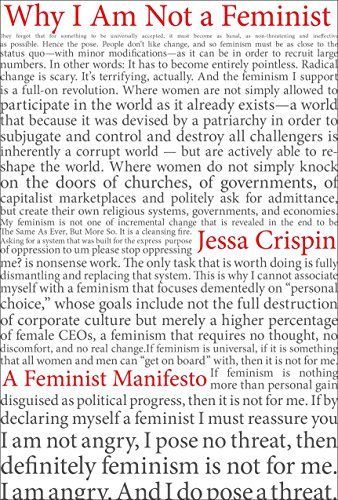
Why I Am Not a Feminist A Feminist Manifesto
Outspoken critic Jessa Crispin delivers a searing rejection of contemporary feminism . . . and a bracing manifesto for revolution. Are you a feminist? Do you believe women are human beings and that they deserve to be treated as such? That women deserve all the same rights and liberties bestowed upon men? If so, then you are a feminist . . . or so the feminists keep insisting. But somewhere along the way, the movement for female liberation sacrificed meaning for acceptance, and left us with a banal, polite, ineffectual pose that barely challenges the status quo. In this bracing, fiercely intelligent manifesto, Jessa Crispin demands more. Why I Am Not A Feminist is a radical, fearless call for revolution. It accuses the feminist movement of obliviousness, irrelevance, and cowardice—and demands nothing less than the total dismantling of a system of oppression. Praise for Jessa Crispin, and The Dead Ladies Project "I'd follow Jessa Crispin to the ends of the earth." --Kathryn Davis, author of Duplex "Read with caution . . . Crispin is funny, sexy, self-lacerating, and politically attuned, with unique slants on literary criticism, travel writing, and female journeys. No one crosses genres, borders, and proprieties with more panache." --Laura Kipnis, author of Men: Notes from an Ongoing Investigation "Very, very funny. . . . The whole book is packed with delightfully offbeat prose . . . as raw as it is sophisticated, as quirky as it is intense." --The Chicago Tribune
Reviews
Maggie Gordon@maggieg
sharkie@scyllalycoris
Maddie@maddie
Bee @izziewithay
Natalie Hanna@loopyloup
Celine Nguyen ✿@celinenguyen
Jenny Mikac@jennymikac
Sarah Agterhuis@saphfyre42
Lindsay Cronk@lindsonmars
Rachel Prudden@stubborncurias